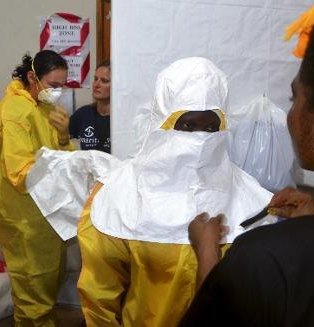WHO declares Ebola an international public health emergency
The World Health Organization has declared the Ebola outbreak in West Africa to be an international public health emergency that requires an extraordinary response to stop its spread. The WHO announced the Ebola outbreak - the largest and longest in history - is worrying enough to merit being declared an international health emergency. WHO declared similar emergencies for the swine flu pandemic in 2009 and for polio in May. WHO chief, Dr. Margaret Chan, said the announcement is “a clear call for international solidarity” but acknowledged that many countries would probably not have any Ebola cases.
Countries affected to date simply do not have the capacity to manage an outbreak of this size and complexity on their own. I urge the international community to provide this support on the most urgent basis possible.
World Health Organisation chief Dr. Margaret Chan
The current outbreak of Ebola began in Guinea in March and has since spread to Sierra Leone and Liberia. There is no licensed treatment or vaccine for Ebola and the death rate has been about 50 percent. The impact of the WHO declaration is unclear; the declaration about polio doesn’t yet seem to have slowed the spread of virus. During a WHO meeting last week to reconsider the status of polio, experts noted countries hadn’t yet fully applied the recommendations made in May, there have been more instances of international spread and that outbreaks have worsened in Pakistan and Cameroon.

Health ebola who